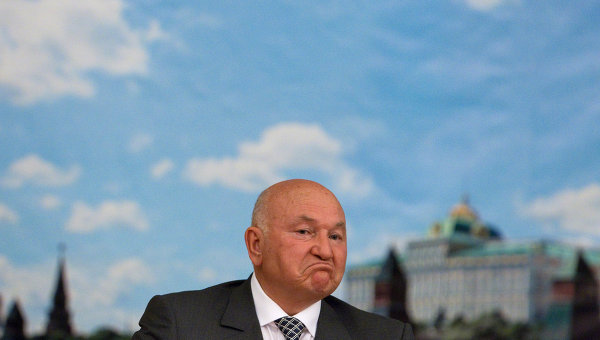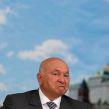
The Mayor is Gone, Long Live the Mayor!
Publication: Eurasia Daily Monitor Volume: 7 Issue: 174
By:

Although the retirement of Moscow Mayor, Yuri Luzhkov, was widely expected (EDM, September 15, 21), the news that the Russian President, Dmitry Medvedev, actually signed a decree on his dismissal came as a shock. Entering his office at 7:55 on September 28, the mayor was met by his “slightly dumbfounded” entourage handing him a newswire clipping announcing that Russia’s most powerful and reportedly richest regional leader, was fired on the grounds of “losing the president’s trust.” Luzhkov’s deputy and the head of Moscow construction complex, Vladimir Resin, was appointed as the acting mayor, with all other officials also receiving the “acting” addition to their titles until the Moscow State Duma, the city’s legislature, confirms the appointment of a new head of the Moscow administration (Interfax, September 28).
Since 2004, when former President, Vladimir Putin, abolished the regional governors’ elections, there were few dismissals. In 2005, Putin fired Vladimir Loginov (Koriak autonomous okrug) for “not preparing the region for the winter,” in 2007, Leonid Korotkov (Amur region) “for the misuse of power,” and in 2008, President Medvedev fired Korotkov’s successor, Nikolai Kolesov, “for bad management” (Kommersant, September 20). By firing Luzkov, Medvedev also continues his pattern of dismissing veteran governors. Recently, Mentimer Shaimiev (Tatarstan), Murtasa Rakhimov (Bashkortostan), Kirsan Iliumzhinov (Kalmykiya), Sergei Fedorov (Chuvashiya), Eduard Rossel (Sverdlovsk) and Petr Sumin (Chelyabinsk region) have left their posts. Boris Gromov (Moscow region), Leonid Polezhaev (Omsk) and Viktor Kress (Tomsk) are expected to follow (Kommersant, September, 27).
An anti-Luzhkov propaganda campaign started in early September and was rumored to have been orchestrated by Vladislav Surkov, deputy head of the presidential administration (Vremya Novostei, September 15), to punish the Moscow mayor for his clumsy attempt to undermine the decorous duumvirate of the president and the prime minister by playing one against another on the ecological-turned-political issue of building a highway through the Khimki woods. Since then, political observers have speculated over when and on what terms Luzhkov would depart. The events obviously took the toughest turn as the mayor not only fell from the grace virtually overnight, but was also denied any possibility of a “soft landing,” usually afforded to high profile bureaucrats in Russia.
Interestingly, on Monday, his first day in office after his traditional week-long holiday in the Alps (where Luzkov returns annually to celebrate his birthday) the 74-year-old Moscow mayor maintained that he intended to stay (Interfax, September 27). Reportedly, during the meeting in the Kremlin just before his vacation, Luzhkov was given a clear choice between voluntary retirement and dismissal by decree. However, Luzhkov was unconvinced that Medvedev, still in the shadow of his powerful prime minister who remained silent throughout the affair, would use his prerogatives. The Moscow branch of the ruling United Russia party, headed by Putin in which Luzhkov was a co-organizer, offered the mayor its unequivocal support.
However, Medvedev, during a visit to China, where he opened the Russian Day at Expo-2010 in Shanghai, singlehandedly ended the beleaguered mayor’s career (Interfax, September 28). Typical of domestic Russian politics, the United Russia party immediately declared through the Secretary of the Presidium of its General Council, Vyacheslav Volodin, that a list of candidates for the post of Moscow Mayor was being prepared (https://www.edinros.ru).
Luzhkov can still try to defend his cause in court. He and his wife, Russia’s richest business woman, Yelena Baturina, are accused of receiving numerous preferences from the Moscow administration, and have filed several slander lawsuits (Kommersant, September 15, 24). Until now, Moscow courts have invariably ruled in favor of the powerful couple, but being just as supersensitive to the changing political winds, as the legislature, the judiciary can also rapidly shift its stance.
Now, with Luzhkov erased from the political map, there are a few important questions to consider. Who will inherit his post? What will happen to his inheritance? And how will the Luzhkov affair influence Russian politics?
The Russian media, referring to unnamed sources close to the Moscow administration, implied that it will be split into the offices of the mayor and the city’s government head, led respectively by Sergei Sobyanin, currently the head of the federal government administration, and by Valeriy Shantsev, governor of Nizhniy Novgorod province and Moscow’s former vice-mayor (Kommersant, September, 28).
Moscow’s economy, a population of about10 million and a $40 billion budget, including enormous construction projects, transportation and communal complexes, along with financial, industrial, real estate and other assets, represents a significant portion of the overall Russian economy. This market has become very lucrative but has shown signs of being prone to political and social complications. Moscow may be on the brink of a huge redistribution of assets comparable with that of the privatization of the 1990’s. However, Viktor Baturin, the head of Inteko-agro, and the brother of Yelena Baturina, with whom he quarreled a few years ago, believes that little will change since Luzhkov has long lost his grip on Moscow’s economy. In his view, Luzhkov created the system, but then the system controlled him. The redistribution of property can be expected only if a new mayor starts changing the system itself, according to Baturin (Kommersant, September 27).
However, it appears unlikely that a new mayor will be allowed to change the status quo. With the presidential elections looming in 2012, destabilizing the capital city by instigating profound change is not in the interests of either Medvedev or Putin. They are widely perceived as the main candidates for the presidency and are expected to settle the issue between themselves with the elections only confirming their decision. Yet, if Moscow is given too much room for maneuvering, its ecomony can spiral out of control and produce an altogether new political player with ambitions to change not just Moscow’s governing system, but also that of Russia. Such a scenario is not a desirable prospect for either member of the duumvirate.




